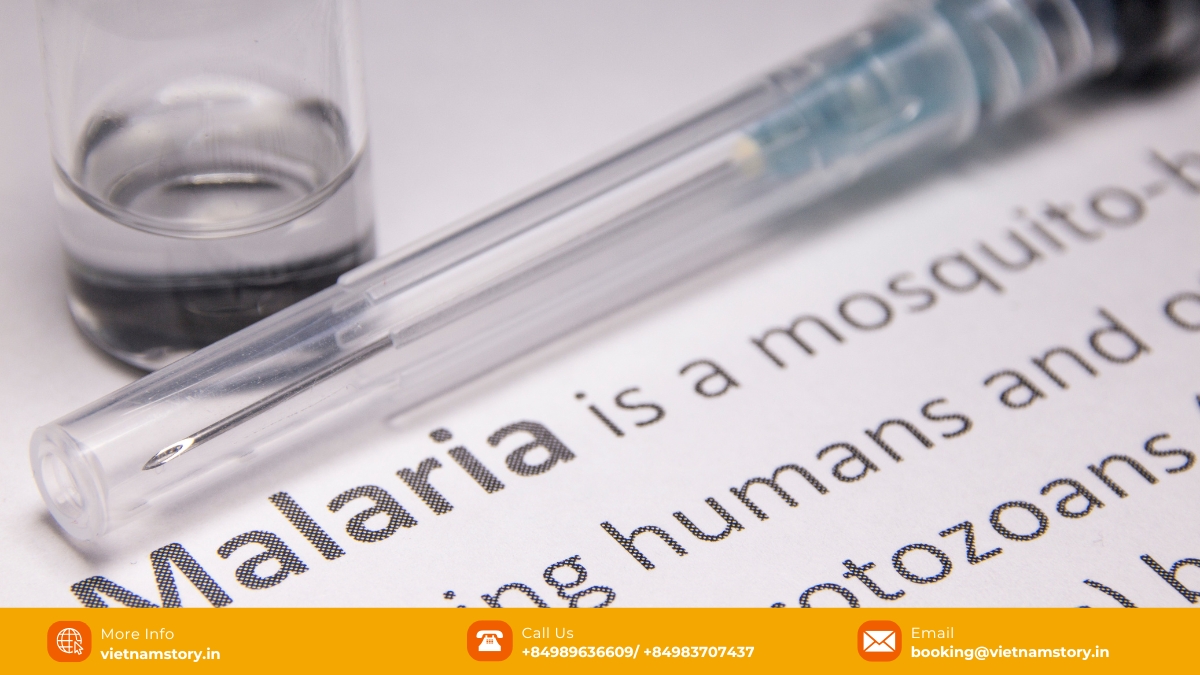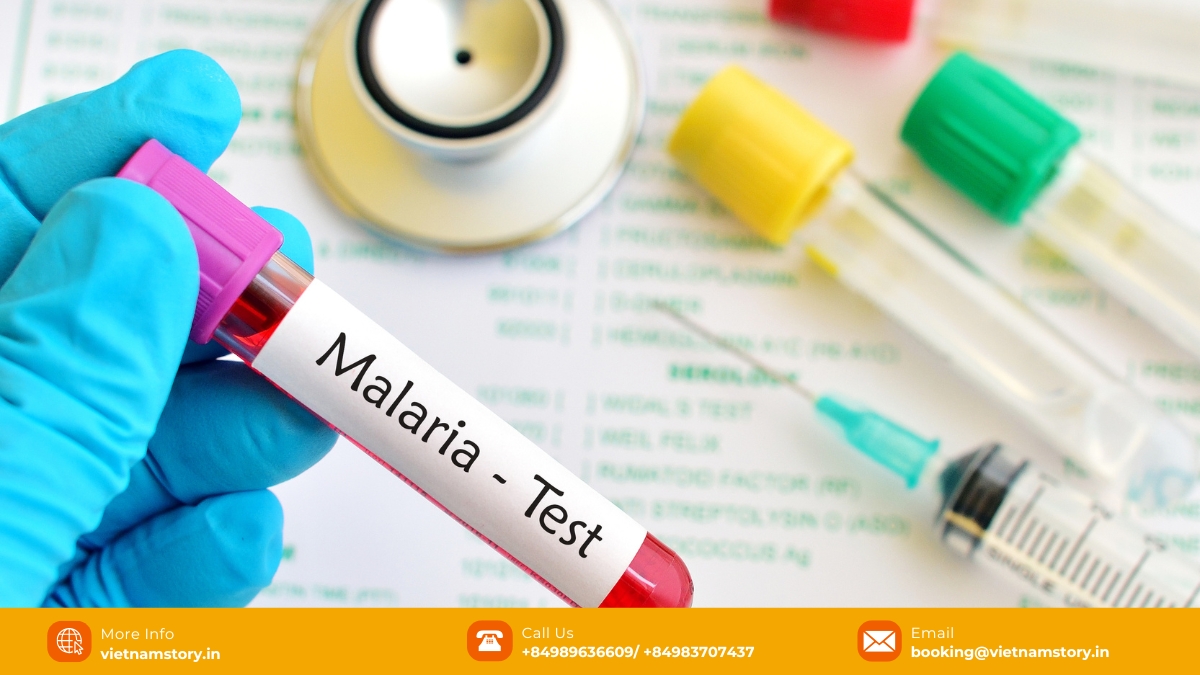One of the most common health questions for Indian tourists planning an exciting tour to Vietnam is regarding the risk of malaria and whether antimalarial medication, or malaria tablets, are necessary. This comprehensive guide aims to answer: “Do I need malaria tablets for Vietnam?” We’ll explore malaria risk in different Vietnamese regions, discuss crucial prevention strategies including mosquito bite avoidance, and help you make an informed decision for your specific travel plans. Remember, this information supports, but does not replace, a personalised consultation with a travel health professional in India before your departure.

Understanding Malaria Risk in Vietnam
Malaria is a serious, sometimes fatal, disease transmitted by the bite of an infected Anopheles mosquito. While Vietnam has made significant strides in controlling malaria, the risk is not uniform across the country. Understanding this variation is key for Indian travellers.
READ MORE: A comprehensive guide to vaccines needed for Vietnam
Geographical Distribution of Malaria Risk
The crucial factor in determining your need for malaria tablets is your specific destination within Vietnam.
- Low to No Risk Areas: Malaria tablets are generally not recommended for travel to major urban centres and popular tourist destinations. This includes cities like Hanoi, Ho Chi Minh City (Saigon), and Da Nang, which are common entry points often served by the main international airports in Vietnam, as well as Hoi An, Nha Trang, and Hai Phong. Similarly, the Red River Delta, the Mekong Delta, Phu Quoc Island, and coastal plains typically have a low to no risk profile.
- Low Risk Areas (Tablets May Be Considered): Some provinces have a low malaria risk throughout the year where tablets are not routinely advised but may be considered for certain travellers (see “Factors Influencing Your Personal Need” below). These include Kon Tum, Gia Lai, Dak Lak, Dak Nong, Binh Phuoc, and the western parts of Phu Yen, Quang Binh, Quang Tri, Khanh Hoa, Ninh Thuan, and Binh Thuan, plus north-west Lai Chau.
- Areas Where Prophylaxis is Often Advised (CDC Recommendations): The US Centers for Disease Control and Prevention (CDC) specifically recommends that travellers going to certain provinces in Vietnam should take prescription medicine (antimalarials) to prevent malaria. These provinces include: Binh Phuoc, Binh Thuan, Dak Lak, Dak Nong, Gia Lai, Lai Chau, Lam Dong, Phu Yen, and Quang Nam. Travellers visiting rural, forested areas within these provinces are at higher risk.
It’s clear that the risk varies significantly, making your itinerary a key part of the decision-making process.
Seasonal Variation
Malaria transmission can be more prevalent during and after the rainy season (typically May to October, varying by region) due to increased mosquito breeding sites. However, preventative measures are important year-round in risk areas.
Types of Malaria in Vietnam
The predominant malaria parasites in Vietnam are Plasmodium falciparum (which can cause severe disease) and Plasmodium vivax (which can cause relapses).
So, Do I Really Need Malaria Tablets for My Vietnam Trip?
The answer depends on a combination of your destination, type of travel, duration of stay, likelihood of mosquito exposure, and your personal traveler’s risk profile. As an Indian tourist, it’s vital to assess these factors carefully.

Factors Influencing Your Personal Need
- Destination in Vietnam: As detailed above, travel to specific provinces like Gia Lai, Dak Lak, Binh Phuoc, or rural parts of Quang Nam carries a higher risk than staying in Hanoi or Ho Chi Minh City.
- Duration of Stay: Longer stays, particularly a long stay in rural areas, can increase your cumulative risk of exposure. If your travel plans involve an extended period, you might also need to consider how to renew Vietnam visa arrangements.
- Type of Travel: Your activities planned, such as trekking, visiting remote villages, exploring the stunning caves in Vietnam, or working in agricultural areas, elevate risk compared to city-based tourism, as these often take you to more rural settings. The likelihood of mosquito exposure is higher if you are spending extensive time outdoors, especially from dusk till dawn.
- Traveler’s Risk Profile (Personal Health):
- Individuals with pre-existing medical conditions (e.g., chronic liver or kidney disease).
- Those with immunosuppression.
- Individuals without a spleen (asplenia / spleen status).
- Children, who can be more vulnerable to severe malaria.
- Travellers visiting friends or relatives in rural, higher-risk areas.
- If you are pregnant or planning pregnancy, malaria poses significant risks, and consultation is absolutely critical. (Note: Zika virus is also a concern in Vietnam for pregnant travellers).
- Your potential access to medical facilities; if travelling to very remote areas, preventative measures become even more critical.
If you fall into any of the higher-risk categories or plan to visit risk-prone areas, antimalarial tablets like Atovaquone/proguanil, Doxycycline, or Mefloquine may be recommended by your doctor in India.
Malaria Prevention: A Multi-Layered Approach
Whether or not you take malaria tablets, consistent mosquito bite prevention is essential for all travellers in Vietnam.
Essential Mosquito Bite Prevention
- Use Insect Repellents: Apply effective repellents containing DEET, Picaridin, or IR3535 to exposed skin, especially during dawn and dusk when Anopheles mosquitoes are most active.
- Wear Protective Clothing: Long-sleeved shirts and long trousers reduce skin exposure. Light-coloured clothing is also advisable.
- Sleep Under Mosquito Nets: If your accommodation is not air-conditioned or well-screened, particularly in rural areas, use an insecticide-treated mosquito net.
- Indoor Control: Use mosquito coils or plug-in vaporizers in your room.
Understanding Antimalarial Medications (Chemoprophylaxis)
Malaria tablets work by killing the malaria parasite. Common options include Atovaquone/proguanil (e.g., Malarone), Doxycycline, and Mefloquine. Each has a specific regimen (when to start, how often to take, when to stop) and potential side effects. It is crucial to discuss these with your doctor in India to choose the most suitable option for your health profile and itinerary.
READ MORE: Travel Insurance in Vietnam
Crucial Step: Consult a Travel Health Professional in India
Before your Vietnam tour, schedule an appointment with your doctor or a travel health clinic in India, ideally 6-8 weeks before departure. They will:
- Conduct a personalised malaria risk assessment based on your specific destination, duration of stay, planned activities, and medical history (including any pre-existing medical conditions or spleen status).
- Advise if malaria tablets are necessary for your trip.
- Prescribe the most appropriate antimalarial medication (e.g., Atovaquone/proguanil, Doxycycline) if needed.
- Provide advice on other travel vaccinations and health precautions for Vietnam.
What If You Feel Unwell?
If you have been travelling in a malarious area of Vietnam and develop a fever or flu-like symptoms during or after your trip (even up to a year later), seek medical attention promptly. Inform the doctor about your travel history. For those travelling to areas very remote from medical facilities, carrying standby emergency treatment for malaria might be considered after discussion with your doctor.
Other Mosquito-Borne Health Risks in Vietnam
Besides malaria, be aware of other mosquito-borne diseases in Vietnam:
- Dengue Fever: Spread by daytime-biting mosquitoes. Protection against bites is key.
- Japanese Encephalitis: A vaccine is selectively advised, especially for long stays in rural areas or for those at highest risk.
- Zika Virus: Vietnam has a risk of Zika virus transmission. Pregnant women or those planning pregnancy should take strict precautions and consult their doctor before travel.
Conclusion: Enjoy Your Vietnam Tour Safely
So, do you need malaria tablets for Vietnam? The answer is nuanced. For many Indian tourists sticking to major cities and popular coastal areas, tablets are often not required. However, if your itinerary includes rural, forested regions, especially those listed as higher risk, or if you have specific health considerations, then antimalarials are likely to be recommended.
Your best course of action is a pre-travel consultation with a healthcare professional in India. Combined with diligent mosquito bite prevention, this will help ensure your tour of Vietnam is both memorable and healthy.
Read more:











